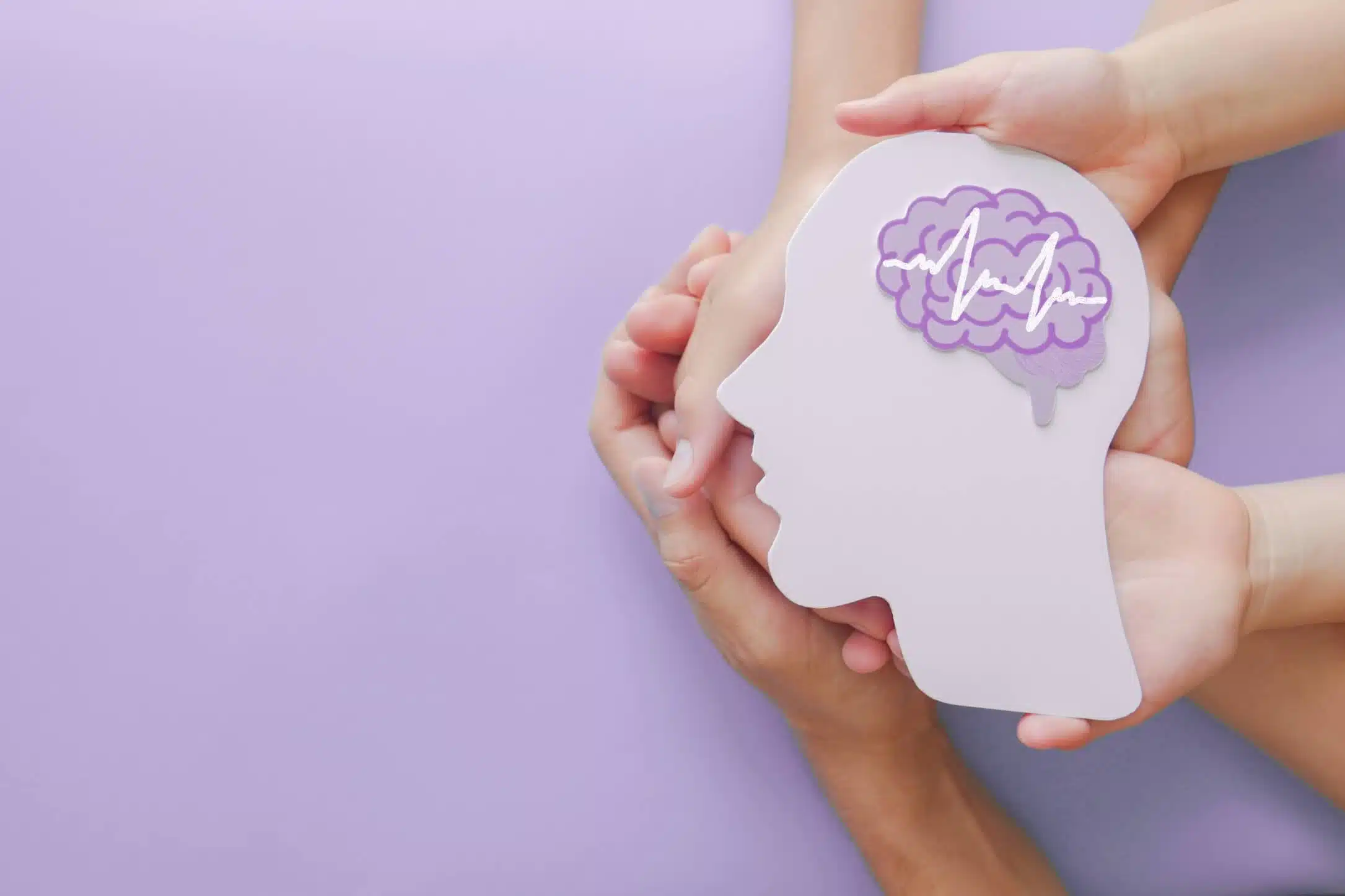Epilepsy is a neurological condition that affects millions of people worldwide. It is a disorder that can cause seizures or irregular electrical activity in the brain and, in children, can affect development, cognition, and behaviour.
Although manageable with the right treatments and techniques, the impact of epilepsy on a child’s life can be significant. It may lead to challenges at school, in activities, or during social interactions.
Epilepsy affects approximately 633,000 people in the UK (Epilepsy Action) – one in nine of us – including an estimated 112,000 children and young people (RCPCH).
At Dementech, our highly experienced team of neurology specialists provide advanced assessments, diagnosis, and treatments for paediatric neurology. If your child is experiencing symptoms of epilepsy, it’s important to seek medical attention promptly to receive early diagnosis and effective treatment.
Read on as we explore the effects of epilepsy on child development.
Childhood Epilepsy Explained
Childhood epilepsy can be a frightening and confusing condition for both parents and children. It is a neurological condition that affects children aged 1 month to 18 years, and occurs due to a disruption in the normal electrical activity of the brain, leading to seizures.
These seizures may present in various forms, including staring spells, jerking movements, and loss of consciousness.
Importantly, there is no single ‘cause’ of childhood epilepsy. It may be rooted in a variety of factors: genetics, brain injuries, infections, or developmental disorders are just some examples.
During a seizure, the brain’s normal electrical activity becomes disrupted, resulting in an epileptic event.
Epileptic seizures can affect the entire brain or specific regions of the brain, leading to various symptoms such as changes in consciousness, motor movements, and sensations. The type of seizure and its location in the brain will determine the symptoms a child experiences.
Understanding childhood epilepsy is crucial for parents and carers of children who show signs of epileptic seizures. Don’t hesitate to contact a paediatric neurologist for further evaluation and diagnosis.
Factors that Can Affect Childhood Epilepsy
As previously stated, it may not always be possible to identify one specific reason why a child experiences epilepsy; the neurological picture is more complex than that.
With that said, “accurate diagnosis of seizure type often provides clues about the underlying cause of an individual’s seizures,” (Massachusetts General Hospital). Given some context, experts can reliably determine a range of factors that may affect childhood epilepsy.
These include:
- Age at onset of seizures
- Type of seizures
- Duration of seizures
- Genetics
- Brain injuries
- Developmental disorders
- Medications
- Environmental factors
Cognitive Effects of Epilepsy on Child Development
Children with epilepsy may experience cognitive challenges due to the effects of seizures (and, potentially, anti-seizure medications) on the brain.
The severity of cognitive impairment can vary depending on the frequency and duration of seizures, as well as the type of epilepsy and the age at which the seizures began. Some common cognitive effects of epilepsy in children include the following.
Intellectual challenges
Children with epilepsy may display some difficulties with learning, problem-solving, and/or abstract thinking. They may also tend to score lower on certain tests than their peers without epilepsy.
However it is important to remember that every child is, of course, different. Maths and sciences may come naturally to one child, for instance, while language and art may pose more of a challenge.
For a child to display difficulties with a certain subject or task does not necessarily indicate the presence of epilepsy.
Memory impairment
Children with epilepsy may have difficulty with both short-term and long-term memory, which can make it challenging to learn and retain new information.
Language problems
Epilepsy can affect the areas of the brain responsible for language, resulting in difficulties with speaking, reading, and writing. Children with epilepsy may have a hard time forming their words, or expressing themselves.
It may also be difficult for them to read smoothly, or they may show inconsistencies in handwriting skills.
Attention and concentration difficulties
Seizures and antiseizure medications can both affect a child’s ability to focus and concentrate, which can impact academic performance and social interactions. They might find it difficult to concentrate on one task for any extended period, or to pay attention to instructions.
Executive function deficits
Children with epilepsy may also have difficulties with planning, organisation, and decision-making, which can affect their ability to complete tasks and function independently.
It is important for parents and caregivers to be aware of the potential cognitive effects of epilepsy and to seek treatment and support as needed to help manage these challenges.
Behavioural Effects of Epilepsy on Child Development
Children with epilepsy may experience behavioural changes that can affect their daily lives. These behavioural changes can be caused by a variety of factors related to the condition, including medication side effects, seizure activity, and the stress of living with a chronic illness.
Some of the common behavioural effects of childhood epilepsy are:
Mood changes
Children with epilepsy may experience mood swings or changes in their emotional state.
Seizures and the impact of antiseizure medications can affect the areas of the brain that regulate mood and emotions; children may experience sudden mood swings, emotional lability, or irritability due to these changes.
Parents and caregivers may notice changes in their child’s behaviour, such as crying, increased frustration, or anger.
Anxiety and depression
Epilepsy can cause anxiety and depression in children, which can be related to the fear of having seizures or the impact of the condition on their daily lives.
Anxiety and depression can cause feelings of sadness, fear, worry, and hopelessness. Children may be afraid to participate in activities, or they may feel overwhelmed by their condition.
Aggression and irritability
Some children with epilepsy may display aggressive or irritable behaviour, which can be related to the impact of seizures on the brain or medication side effects.
Sleep disturbances
Seizures can disrupt sleep patterns in children, leading to fatigue and related behavioural changes.
Children with epilepsy may experience nocturnal seizures, which can disrupt sleep patterns. In addition, sleep deprivation generally affects mood, behaviour, and cognitive function, making it difficult for children to focus and learn.
5 Strategies For Managing Childhood Epilepsy
Epilepsy can be a challenging condition to manage, both for the children who experience it and the people around them. But by understanding the condition and making use of these expert epilepsy-management tips, you can help your child navigate the challenges that come with epilepsy as smoothly as possible.
- Consistent medication schedule: It is important to maintain a consistent schedule for medication to ensure their effectiveness.
- Seizure diaries: Keeping track of when seizures occur, how long they last, and any triggers that may have caused them can help parents and caregivers identify patterns and make adjustments to the child’s routine or medication regimen.
- Safety precautions: Creating a safe environment for a child with epilepsy is crucial. This may include padding sharp corners or edges, using safety gates or bed rails, and avoiding activities or situations that could be dangerous if a seizure were to occur.
- Stress management: Stress can often be a trigger for seizures, so it is important to help children with epilepsy learn stress-management techniques such as deep breathing, meditation, or relaxation exercises.
- Education and communication: Educating family members, teachers, and other caregivers about epilepsy and its effects can help create a supportive and informed network. Communication between caregivers, healthcare providers, and school personnel helps ensure the child’s needs are met and that they receive appropriate accommodations.
Epilepsy & Epileptic Seizures: Find Treatment With Dementech Neurosciences
Although many children with epilepsy may experience significant cognitive impairment due to the effects of seizures (or partial seizures), this doesn’t necessarily mean the child’s development will be seriously damaged. It’s important for both parents and children with epilepsy to understand the condition, and techniques to help control seizures, in order to overcome any learning difficulties or other challenging effects.
As a specialist paediatric neurology clinic, we offer expert and specialist assessments of a wide range of psychiatric disorders, learning disabilities, and brain development conditions (including autism spectrum disorder).
Book a consultation with one of our experts today, and a member of our team will be in touch with you as soon as possible.
FAQs
Got a question about childhood epilepsy, or seeking further information? Browse our FAQs below.
How does epilepsy affect learning?
Epilepsy can affect learning by causing cognitive impairments that can make it difficult for children to learn and retain new information. Seizures can disrupt attention, memory, and processing speed, all of which are critical for learning. This can lead to difficulties in school and require extra support from teachers and other professionals.
Does epilepsy cause developmental issues?
Epilepsy can cause developmental issues in some children, especially if the condition is severe or poorly controlled. Seizures can affect the developing brain, leading to delays in motor skills, speech and language, and other areas of development. Additionally, children with epilepsy may have more difficulty with social and emotional development due to the impact of the condition on their daily lives.
Can epilepsy lead to intellectual disability or learning difficulties in children?
In some cases, epilepsy can lead to intellectual disability or learning difficulties, especially if the condition is severe or not well controlled. This is because seizures can disrupt the normal functioning of the brain, which can impact cognitive development. However, with appropriate treatment and support, many children with epilepsy are able to achieve their full potential and lead successful lives.
What is the role of medication in managing the cognitive and behavioural effects of epilepsy?
Anti-seizure medications are the primary treatment for epilepsy and can help manage the cognitive and behavioural effects of the condition. By reducing the frequency and severity of seizures, medication can improve attention, memory, and other cognitive functions. Additionally, some medications can help manage behavioural symptoms such as aggression and irritability. It is important to work closely with a doctor to find the right medication and dosage for each child.
Can childhood epilepsy cause problems later in life?
Childhood epilepsy can increase the risk of certain problems later in life, such as cognitive and behavioural difficulties, mental health issues, and social and emotional challenges. However, with appropriate treatment and support, many children with epilepsy are able to overcome these challenges and lead successful lives. It is important to continue monitoring and managing the condition into adulthood to ensure the best possible outcomes.
Can a person with epilepsy lead a normal life?
With appropriate treatment and support, many people with epilepsy are able to lead normal lives. This may involve taking medication, avoiding triggers that can cause seizures, and working with healthcare professionals to manage the condition. While epilepsy can be a challenging condition, it does not have to define a person’s life or limit their potential.





